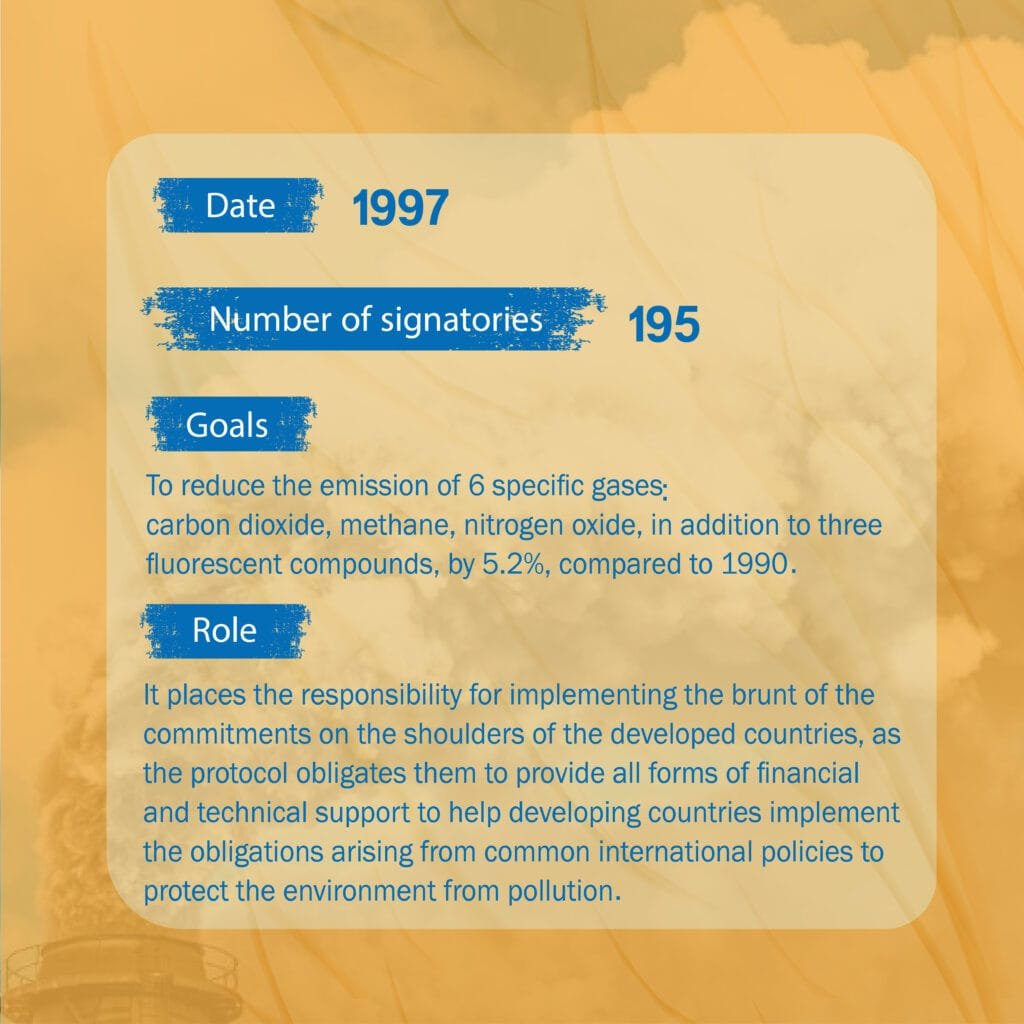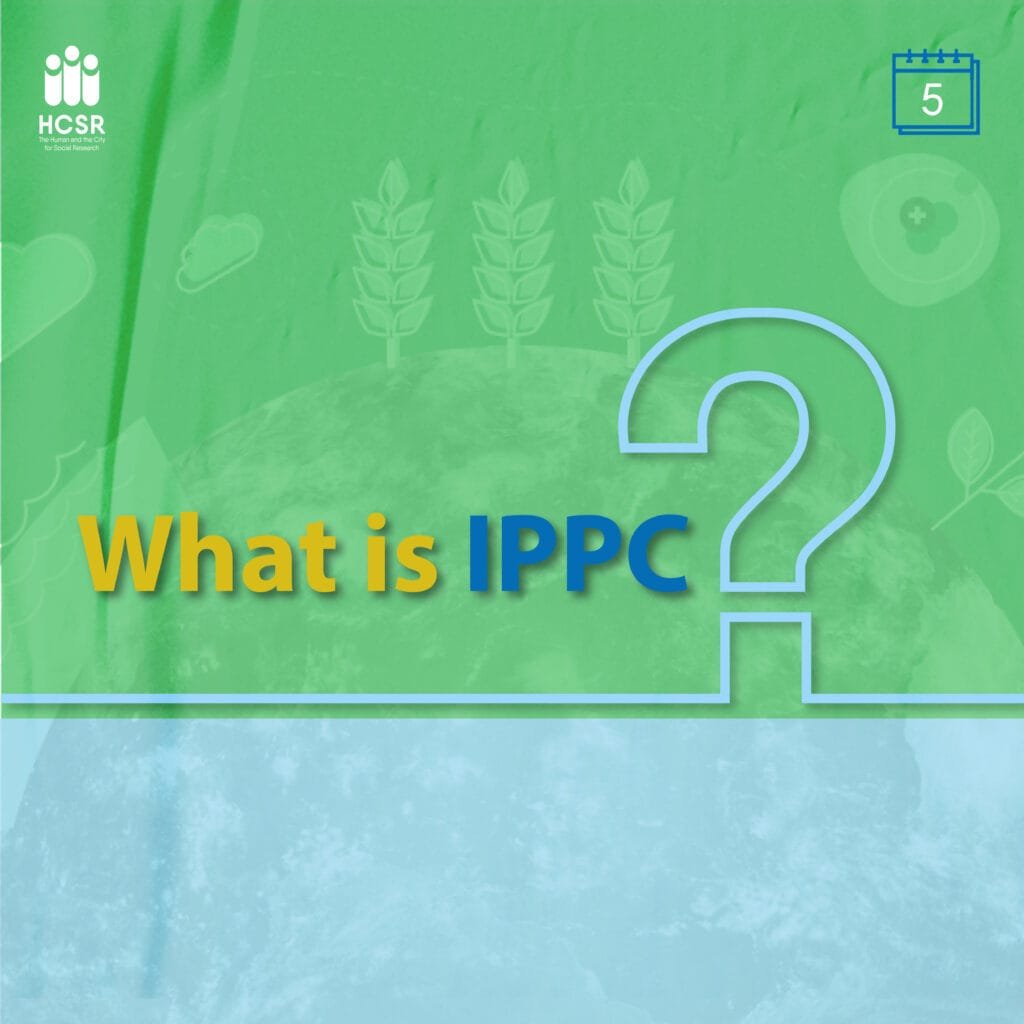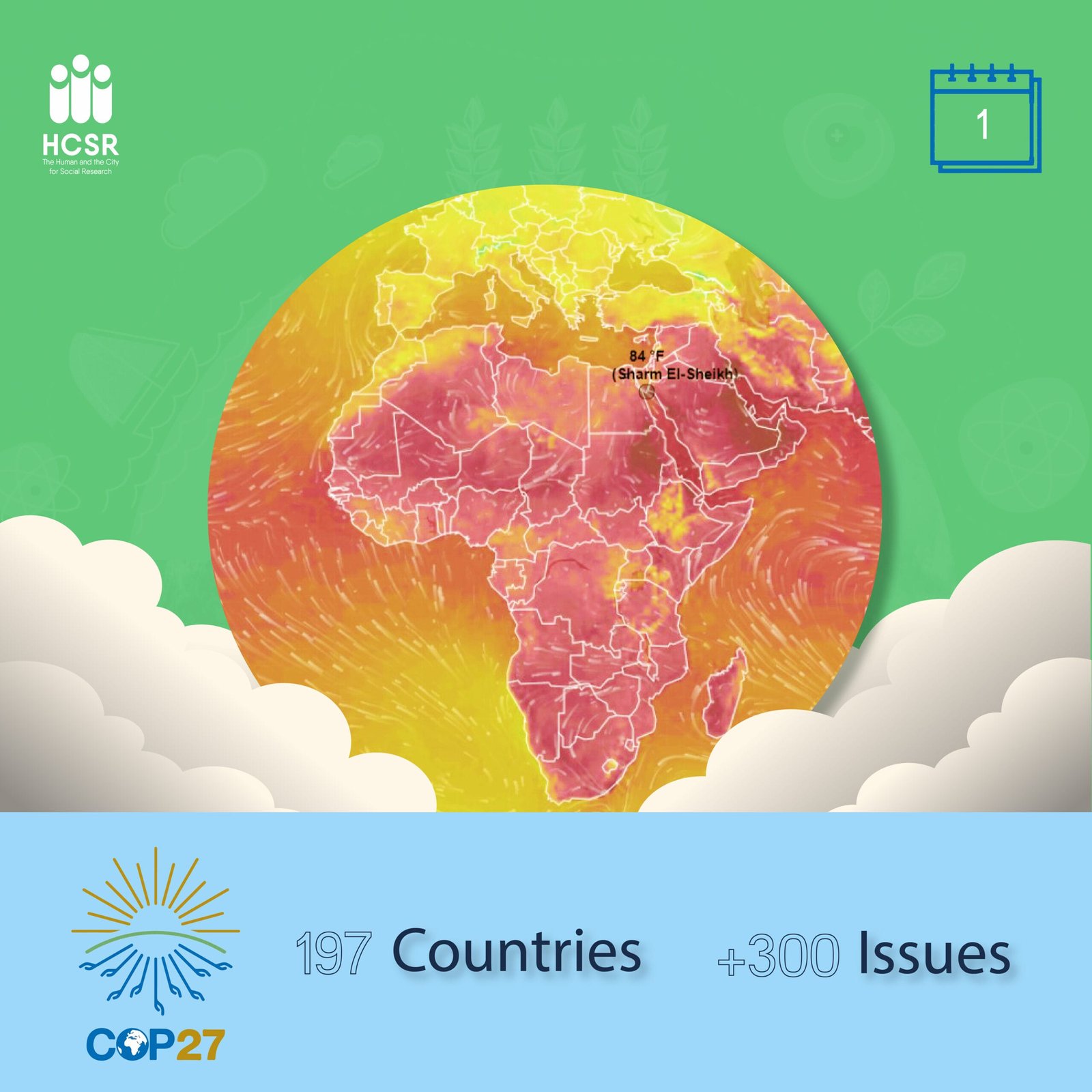In November, Egypt hosts the twenty-seventh Conference of Parties (COP 27) in Sharm El-Sheikh. In light of this and our coverage of this international mega event, believing in the importance of community awareness, we start with the most important definitions:
What is COP?
The Conference of Parties is the decision-making body responsible for monitoring and reviewing the implementation of the United Nations Framework Convention on Climate Change (UNFCCC).
Who are the parties?
They are the 197 countries and territories that have signed the framework agreement, including Egypt.
When is the conference held and what are its most important achievements?
COP has been held annually since its first edition in 1995. Perhaps its most important achievement is the unification of countries in the first international climate agreement to reduce the risks of climate change.
Kyoto Protocol:

About Kyoto Protocol

Date: 1997
Number of signatories: 195 countries
Goals: to reduce the emission of 6 specific gases: carbon dioxide, methane, nitrogen oxide, in addition to three fluorescent compounds, by 5.2%, compared to 1990.
Role: It places the responsibility for implementing the brunt of the commitments on the shoulders of the developed countries, as the protocol obligates them to provide all forms of financial and technical support to help developing countries implement the obligations arising from common international policies to protect the environment from pollution.
Paris Agreement

The Paris Climate Agreement is an output of the COP 21 held in the French Capital in 2015. Based on the Kyoto Protocol, it was effectuated in November 2016.
About The Paris Agreement:


Date: December 2015
Number of signatories: 194
Objectives:
– Addressing the problem of greenhouse gas emissions and finding ways to adapt to it
– Paying serious attention to the effects of climate change
– Limiting temperature rise to less than two degrees Celsius
Most important terms:
– Reducing the intensity of greenhouse gas emissions by reducing energy consumption, investing in clean energies and reforestation.
– Strengthening efforts to limit the temperature increase to 1.5 degrees Celsius
Role:
The agreement commits rich countries to provide 100 billion USD annually starting in 2020 to developing countries for helping them finance renewable energies.
What is IPPC?

Conventional energy vs Renewable energy
In light of the global energy crisis, rising prices and the planet’s suffering from climate change, attention is turning towards renewable energy. Is clean energy the world’s only hope for a better future?
To answer this question, we will review the most important benefits of each of the two energies and their limitations.





